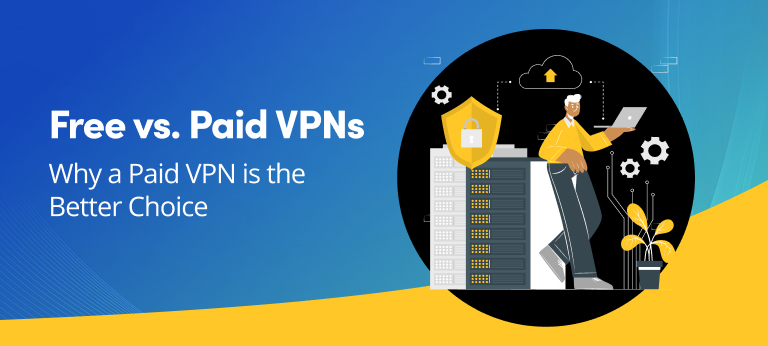In today’s digitally connected world, safeguarding online privacy and security is paramount. Virtual Private Networks (VPNs) have emerged as essential tools for achieving these goals. However, when deciding on a VPN, users often grapple with a critical decision: should they opt for a free VPN or invest in a paid VPN service? This article aims to provide a comprehensive analysis of free VPNs versus paid VPN services, with a focus on why a paid VPN is the superior choice for users seeking enhanced privacy and security.
Free VPNs: Pros and Cons:
Pros:
1. Cost Savings: Free VPNs do not require a financial commitment, making them appealing to users on a budget.
2. Many free VPNs offer basic encryption, which can improve security when using public Wi-Fi networks or accessing geo-restricted content.
3. Ease of Use: Free VPNs are often user-friendly and straightforward to set up, catering to users with limited technical expertise.
Cons:
1. Limited Server Options: Free VPNs typically have a restricted number of servers, leading to slower speeds and limited access to geo-restricted content.
2. Data Caps and Bandwidth Restrictions: Free VPNs may impose data caps and bandwidth limitations, impacting data transfer amounts and connection speed.
3. Privacy Concerns: Some free VPNs may log user data and sell it to advertisers or third parties, compromising user privacy.
4. Security Risks: Free VPNs may lack advanced security features, leaving users vulnerable to threats like DNS leaks, IP leaks, and malware.
Paid VPN Services: Pros and Cons:
Pros:
1. Enhanced Security: Paid VPN services typically offer robust encryption, advanced security features, and a strict no-logs policy to protect user privacy.
2. High-Speed Servers: Paid VPNs invest in high-speed servers across multiple locations, ensuring faster and more reliable connections.
3. Unrestricted Access: Paid VPN users enjoy unrestricted access to a global network of servers, enabling them to access geo-restricted content from around the world.
4. Customer Support: Paid VPN services often provide responsive customer support to assist users with technical issues and inquiries.
Cons:
1. Cost: The primary drawback of paid VPN services is the associated cost. However, many users find the investment worthwhile given the enhanced security and features.
2. Subscription Commitment: Paid VPNs require users to commit to a subscription plan, which may not be ideal for those seeking short-term solutions.
Conclusion:
In conclusion, when it comes to choosing a VPN service that prioritizes online privacy and security, paid VPNs clearly outshine their free counterparts. While free VPNs may initially appeal to those on a tight budget, they come with inherent risks, including data logging, security vulnerabilities, and limited support.
On the other hand, paid VPN services provide a robust defense against online threats, offering strong encryption, high-speed servers, unrestricted access, and dependable customer support. These features make paid VPNs the superior choice for users looking to safeguard their online privacy and security effectively.
While there is a cost associated with paid VPNs, the investment is justified when considering the comprehensive protection they offer in today’s digital landscape, where online threats are prevalent. Ultimately, the decision between free and paid VPNs hinges on individual needs and priorities, but the advantages of a paid VPN service cannot be overstated when it comes to ensuring a safer and more secure online experience.

